detail profile ivan brki c4 87
Peran Yang Di Mainkan Ivan Brkić
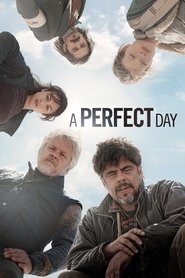 Somewhere in the Balkans 1995 A team...
Somewhere in the Balkans 1995 A team...A Perfect Day 2015
Somewhere in the Balkans, 1995. A team of aid workers must solve an apparently simple problem in an almost completely pacified territory that has been devastated by a cruel war, but some of the local inhabitants, the retreating combatants, the UN forces, many cows and an absurd bureaucracy will not cease to put obstacles in their way.
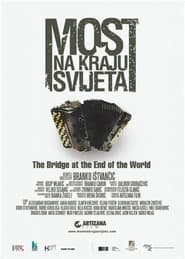 The war has ended Villages of...
The war has ended Villages of...The Bridge at the End of the World 2014
The war has ended. Villages of Bosnian Croats have been destroyed, and they are living in the homes of the Croatian Serbs. An old man, a Bosnian Croat, disappears. A policeman Filip, himself living in a Serbian home, investigates the case uninterestedly. Through the relationship with his father, Filip tries to understand the motives of the missing old man. As the film moves towards the end, Filip’s investigation becomes more and more personal.
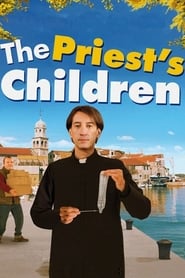 Don Fabijan is a young priest...
Don Fabijan is a young priest...The Priest's Children 2013
Don Fabijan is a young priest who comes to serve on an unnamed small island in the Adriatic. In order to help increase birth rate on the island, he decides to pierce condoms before they are sold. He therefore teams up with the newsagent Petar and the pharmacist Marin. After they abolish all forms of birth control on the entire island, the consequences become more and more complicated.
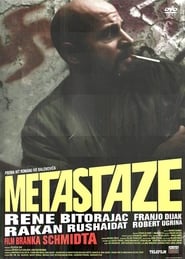 Eliciting images of cancer this drama...
Eliciting images of cancer this drama...Metastases 2009
Eliciting images of cancer, this drama explores the illnesses that plague modern Croatia. Four young junkies in Zagreb maturing in the wake of war reflect the petty hatreds, violence, prejudices and mood hanging over the country like a disease that spreads with no cure in sight.
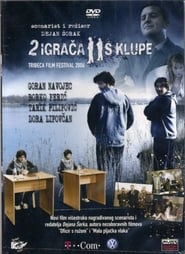 Ante and Dusko are two Dream...
Ante and Dusko are two Dream...Two Players from the Bench 2005
Ante and Dusko are two Dream Team players. Besides being a Croat and a Serb who fought on opposite sides in the war, both used to be volleyball players. Today, they live normal lives, one in a remote craggy region, the other in Banja Luka. There is little chance of them ever meeting again. The International War Crimes Tribunal in the Hague has indicted Colonel Skoko, a hero to some, a criminal to the others. The two main witnesses to his defense, Mato and Joso, have disappeared without a trace. Skoko's sponsor from the intelligence circles, Antisa, wants to find two men resembling Mato and Joso, to impersonate them before the Hague investigators, and hopefully bring down the indictments. Naturally, the two men he finds are none other than our heroes, Ante and Dusko.
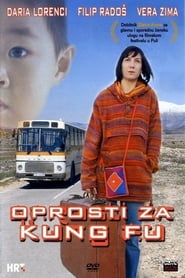 Mirjana is returning to Croatia from...
Mirjana is returning to Croatia from...Sorry for Kung Fu 2004
Mirjana is returning to Croatia from Germany where she spent some time as a refugee. She is pregnant. Now, when the war in Croatia is over and her visa expired, Mirjana is coming back to her family in a remote and devastated village. Her family is trying to move on with their lives after the war. They rebuild their house and they are trying to find a new husband for their pregnant daughter. Being patriarchal and devoted to their tradition they believe a woman needs to have a husband and a child has to have a father. Of course, the child and the father have to be of the same nationality. Problems start when Mirjana gives a birth to a boy with Asian features. The family and the neighbors are shocked. Mirjana¡¦s rigid father refuses to accept a grandchild of a different nationality, not to mention the one of a different race! Mirjana and her son are forced to leave. She returns only when her father falls seriously ill and requests to see his grandson before he dies.
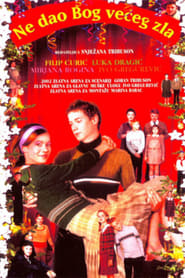 The adventures of a small town...
The adventures of a small town...God Forbid a Worse Thing Should Happen 2002
The adventures of a small town Croatian family during the 1960s. The decade will leave eternal marks on all of their members, but most of the story focuses on the youngest one, a boy, Frula, who discovers the love and fashion of the time.
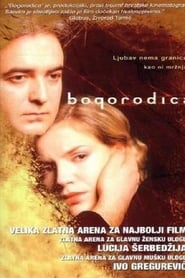 In a small Croatian village in 1991...
In a small Croatian village in 1991...Madonna 1999
In a small Croatian village in 1991, a carpenter Kuzma falls for much younger Ana. In spite of their surroundings' opposition towards their relationship, the couple marries and Ana gives birth to their son. Being also familiar with the statuary, he makes a sculpture of Madonna for the local church. A quiet life of the village is disturbed when the first clashes between Croats and Serbs arise.
 At the beginning of 1991 Yugoslav army...
At the beginning of 1991 Yugoslav army...How the War Started on My Island 1997
At the beginning of 1991, Yugoslav army did not acknowledge Croatian's independence, and still holding few military barracks in Croatia. Gajski travels to an island to get his son out of the army. Locals have besieged the barracks and organized a festival to try with singing and recitals to get major Aleksa and his soldiers to surrender, but Aleksa has explosives thru the barracks and wants to blow up the island.
 After Stipe Zvonarov returned from the...
After Stipe Zvonarov returned from the...The Life of Stipe Zvonarov 1988
After Stipe Zvonarov returned from the Austro-Hungarian army to his Slavic village, he found his wife Mara and mother. Women rightly expect Stipe to accept rural jobs, but he can no longer accept the monotony and restrictions of rural life.

 20 years ago Vesna moved her family...
20 years ago Vesna moved her family...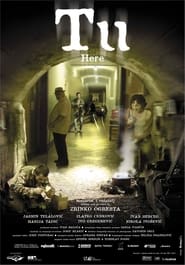 A panoramic view over society across...
A panoramic view over society across...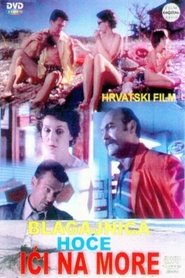 After being repeatedly denied her requests...
After being repeatedly denied her requests...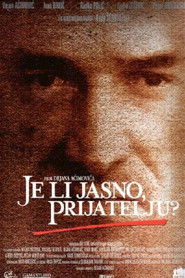 A cruel world of the Yugoslavian...
A cruel world of the Yugoslavian...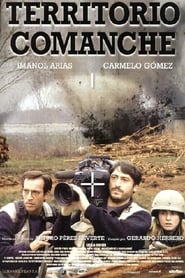 Spanish TV reporters covering the War...
Spanish TV reporters covering the War... In 1981 in Medjugorje BA a group...
In 1981 in Medjugorje BA a group...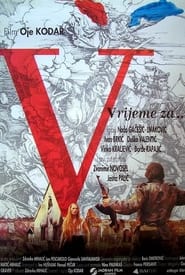 Maria lives with his son Darko...
Maria lives with his son Darko...